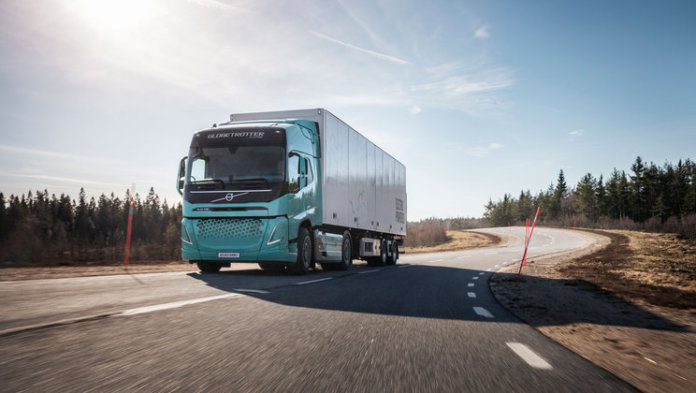Volvo Trucks says it has developed electric concept trucks for construction operations and regional distribution, joining the existing commercialization of Volvo electric trucks for urban transport.
“We see great potential for heavy-duty electric trucks for regional transport and construction in the longer term,” says Roger Alm, president of Volvo Trucks. “With our concept trucks, we aim to explore and demonstrate different solutions for the future while evaluating the level of interest in the market and in society. To increase demand for electrified trucks, the charging infrastructure needs to be rapidly expanded, while stronger financial incentives must be created for haulers, who act as pioneers by choosing new vehicles with a lower environmental and climate footprint.”
Heavy-duty electric trucks can help improve the work environment for drivers and construction workers thanks to low noise level and zero exhaust emissions during operation. The latter will have a significant and positive effect on air quality in cities with many ongoing construction projects. Due to the lack of noise disturbance, these trucks also make it possible to perform transport operations for more hours per day which opens up new possibilities for streamlining operations – for instance, in large construction projects and for transports in and around cities.
“In Europe there is an enormous number of trucks used for regional goods transport that have an average annual mileage of 80,000 km,” explains Lars Mårtensson, director of environment and innovation, Volvo Trucks. “This means that increased use of electric vehicles for regional distribution would result in significant climate gains, provided the electricity is fossil-free.”
Volvo Trucks’ plan for electric heavy-duty trucks for construction and regional distribution is to start by having selected customers in Europe pilot a small number of future electric vehicles. More extensive commercialization will follow.
“The speed of electrification will depend on a number of factors. On the one hand, an extensive expansion of the charging infrastructure is needed, and on the other hand, it’s necessary to ensure that regional power networks can deliver sufficient transfer capacity in the long term,” Mårtensson says.
“Financial incentives are necessary to induce more haulers to invest in electric vehicles. Transport buyers can also contribute by offering longer contracts and being more willing to pay for sustainable transports. Many haulage operators have very small margins, so every new investment must be profitable,” he adds.





